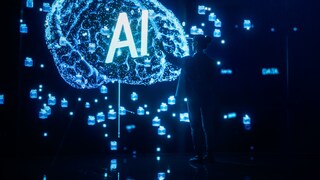Oppo Pad SE Android Tablet Launched In India; Check Features

The rapid advent of Artificial Intelligence (AI) has fuelled concerns across the world over potential job losses. However, MIT economist David Autor has predicted a different future – where unemployment may not be the problem, but receiving your paycheck won’t be as satisfactory.
Autor predicted that the rise of AI could trigger a “Mad Max" scenario, where skills that once generated wages would become cheap and commoditised, and leaving most workers fighting for little of what wealth they can get, while the rich consolidate most of the power.
“The more likely scenario to me looks much more like Mad Max: Fury Road, where everybody is competing over a few remaining resources that aren’t controlled by some warlord somewhere," he said on the “Possible" podcast, hosted by LinkedIn cofounder Reed Hoffman.
Autor was referring to the dystopian movie ‘Mad Max: Fury Road’, a post-apocalyptic movie where resources are scarce while a tyrant rules over a helpless population. The economist said AI could concentrate wealth and power at the top while leaving most workers to fight over what’s left.
“The threat that rapid automation poses — to the degree it poses as a threat — is not running out of work, but making the valuable skills that people have highly abundant so they’re no longer valuable," he said.
He also pointed out that some roles, such as touch typists, factory technicians and taxi drivers – which are well-paying jobs – have been downgraded or replaced by technology. He said people will not be unemployed, but shifted to lower-paid service jobs like food service, cleaning or security that do not require much training and offer minimal pay.
“Automation can either increase the expertise of your work by eliminating the supporting tasks and allowing you to focus on what you’re really good at," he said. “Or, it can descale your work by automating the expert parts and just leaving you with a sort of last mile."
This follows a Salesforce study from May, which projected that 23% of workers will be redeployed over the next two years due to the rapid rise of AI. Even those who remain in their current roles are expected to see significant changes in their job responsibilities.
Autor called on efforts to design AI to support workers in order to avoid a future where technology widens inequality. He said the best place to start would be by focusing AI where it can do the most good, such as in healthcare and education.
“Healthcare and education — two activities that in the United States has 20% GDP, a lot of it public money, actually — this is where there’s such a great opportunity where AI could be a tool that could be so helpful to us in a way that other tools have not been," he said.